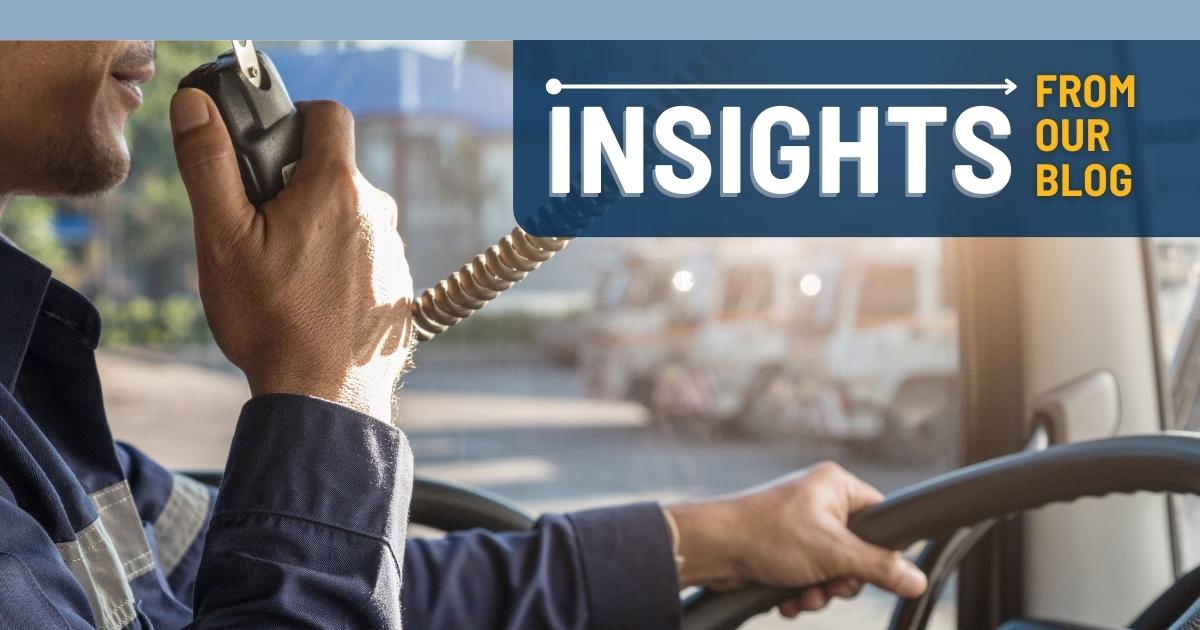
Being safety minded has its benefits for any employer. For motor carriers, however, it is crucial to keeping your drivers on the road and your operation running smoothly.
Putting a focus on driver and operational safety has many upsides. It can reduce expenses due to accidents or employee carelessness, it can help attract new business, and it can increase revenue for the company.
Here are five ways that your success also affects your insurance rate:
A safety program promotes safe habits
If your company doesn’t have a formal safety program, now is the time to start. Why should you create a motor carrier safety program? A formal safety program at your trucking company can ensure that your entire staff is on the same page and understands the expectations of their role.
This allows leadership to properly train new staff and drivers about building and upholding safe practices in their departments, divisions, or roles. Next, set goals and expectations for each department and track successes over time. Hold every employee accountable to expectations.
Safe drivers have fewer accidents, reducing downtime
Safety on the road comes in many forms - following posted speed limits, using proper techniques when working on or around trucks or equipment, and being mindful of your surroundings when stopped for the night. Insurance losses can occur at any time, so teaching drivers to be mindful of potential hazards and remain vigilant in all they do can translate to more favorable premiums.
utilize available trucking safety technologies
On-board cameras and speed monitors can help reduce premiums if a trucking company properly uses the data to train and monitor drivers for safety. If a motor carrier has multiple safe driver initiatives in place, adding technology and its supporting analytics can have a big impact on your bottom line.
A safe workplace reduces injuries
A safe workplace reduces injuries and can contribute to lowering your workers compensation premium. Reducing by a single serious workplace accident can impact the cost of your insurance. Establishing safety education programs can reap great benefits when programs are consistent and ongoing. Additionally, leaders must expect and practice safety every day in the workplace, emphasizing prevention.
Operating a safe workplace will improve your reputation
Insurance companies will seek out motor carriers that value safety and trust, have a safety mindset, and the metrics to back up your record. Reducing accidents, increasing on-time deliveries, and minimizing cargo damage are all ways to demonstrate your company can be a trusted partner.
Note: These lists are not intended to be all-inclusive.
8 QUESTIONS TO ASK YOUR TRUCK INSURANCE AGENTWant to learn more? Download our white paper, Insurance is an Investment: |

© Great West Casualty Company 2020. The material in this publication is the property of Great West Casualty Company unless otherwise noted and may not be reproduced without its written consent by any person other than a current insured of Great West Casualty Company for business purposes. Insured should attribute use as follows: “© Great West Casualty Company 2020. Used with permission by Great West Casualty Company.”
This material is intended to be a broad overview of the subject matter and is provided for informational purposes only. Great West Casualty Company does not provide legal advice to its insureds, nor does it advise insureds on employment-related issues. Therefore, the subject matter is not intended to serve as legal or employment advice for any issue(s) that may arise in the operations of its insureds. Legal advice should always be sought from the insured’s legal counsel. Great West Casualty Company shall have neither liability nor responsibility to any person or entity with respect to any loss, action, or inaction alleged to be caused directly or indirectly as a result of the information contained herein.




